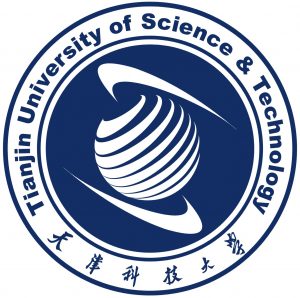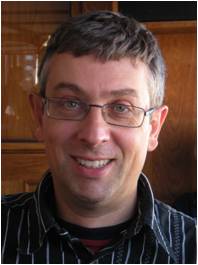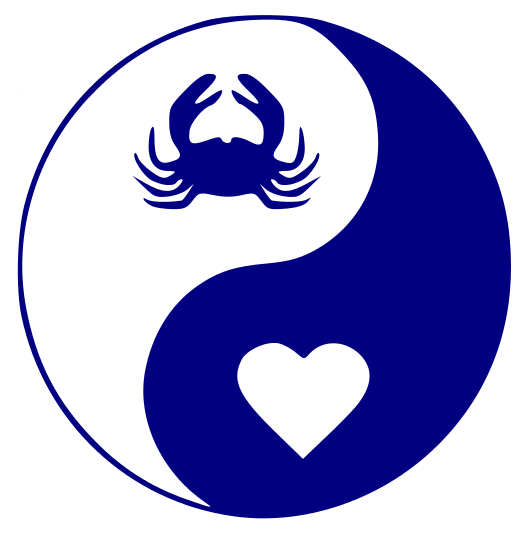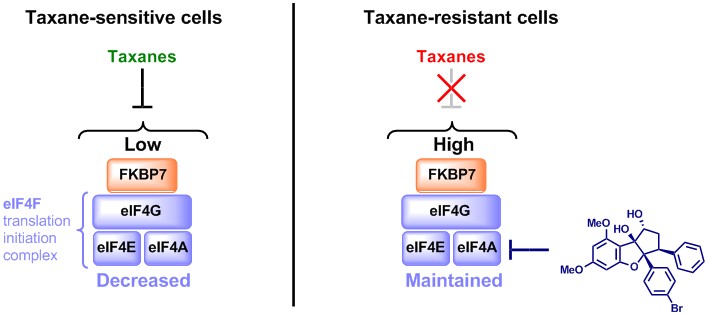POSITION TITLE: Director of Research at CNRS at he University of Strasbourg (France), adjunct professor at the University of Science and Technology of Tianjin (China)
aaaaaaaaaaaaaa


Our group is devoted to the design and synthesis of various classes of prohibitin ligands and PKR1 agonists to treat cancers, heart failure, neurological and inflammatory diseases and also to protect the heart against the adverse effects of cancer chemotherapies. In collaboration with Dr Canan Nebigil, we developed a family of prohibitin ligands, belonging to the class of flavaglines, that display potent anticancer and cardioprotective effects.
Adress:
UMR 1260, Regenerative Nanomedicine, INSERM-University of Strasbourg 11 rue Humannl, 67085, France
desaubry@unistra.fr
ORCID: 0000-0002-1192-2970
Key articles related to oncology and cardio-oncology:
83. Updates in Anthracycline-Mediated Cardiotoxicity. Nebigil C.G., Désaubry L. Front. Pharmacol. 9: 1262 (2018).
 82. Translational control of tumor immune escape via the eIF4F–STAT1–PD-L1 axis in melanoma. Cerezo M., Guemiri R., Druillennec S., Girault I., Malka-Mahieu H., Shen S., Allard D., Martineau S., Welsch C., Agoussi S., Estrada C., Adam J., Libenciuc C., Routier E., Roy S., Désaubry L., Eggermont A.M., Sonenberg N., Scoazec J.Y., Eychène A., Vagner S., Robert C. Nature Med. 24: 1877-1886 (2018).
82. Translational control of tumor immune escape via the eIF4F–STAT1–PD-L1 axis in melanoma. Cerezo M., Guemiri R., Druillennec S., Girault I., Malka-Mahieu H., Shen S., Allard D., Martineau S., Welsch C., Agoussi S., Estrada C., Adam J., Libenciuc C., Routier E., Roy S., Désaubry L., Eggermont A.M., Sonenberg N., Scoazec J.Y., Eychène A., Vagner S., Robert C. Nature Med. 24: 1877-1886 (2018). 
81. Regulation of eIF4F translation initiation complex by the peptidyl prolyl isomerase FKBP7 in taxane-resistant prostate cancer. Garrido M.F., Martin N.J.P., Gaudin C., Commo F., Al Nakouzi N., Fazli L., Del Nery E., Camonis J., Perez F., Lerondel S., Gleave M., Loriot Y., Désaubry L., Vagner S., Fizazi K., Chauchereau A. Clin. Cancer Res. 24: in press (2018).
77. Emergence of cardio-oncology. Nebigil C.G., Désaubry L. Ann Pharm Fr. 76: 504-506 (2018).
 76. Targeting prohibitin with small molecules to promote melanogenesis and apoptosis in melanoma cells. Djehal A., Krayem M., Najem A., Hammoud H., Cresteil T., Nebigil, C.G., Wang D., Yu P., Bentouhami E., Ghanem GE., Désaubry L. Eur. J. Med. Chem. 155: 880-888 (2018).
76. Targeting prohibitin with small molecules to promote melanogenesis and apoptosis in melanoma cells. Djehal A., Krayem M., Najem A., Hammoud H., Cresteil T., Nebigil, C.G., Wang D., Yu P., Bentouhami E., Ghanem GE., Désaubry L. Eur. J. Med. Chem. 155: 880-888 (2018).

73. Flavagline analog FL3 induces cell cycle arrest in urothelial carcinoma cell of the bladder by inhibiting the Akt/PHB interaction to activate the GADD45α pathway.Yuan G-J., Chen X, Liu Z-W.; Wei W-S., Shu Q-H., Abou-Hamdan H., Jiang L-J., Li X-D., Chen R-X.; Désaubry L., Zhou F-J.; Xie D. J. Exp. Clin. Cancer Res. 37: 21 (2018).
69. The prohibitin-binding compound fluorizoline induces apoptosis in chronic lymphocytic leukemia cells ex vivo but fails to prevent leukemia development in a murine model. Wierz M., Pierson S., Chouha N., Désaubry L., François JH., Berchem G., Paggetti J., Moussay E. Haematologica in press (2018).
67. Regulation of eIF4F complex by the peptidyl prolyl isomerase FKBP7 in taxane-resistant prostate cancer. Garrido M.F., Martin N.J.P., Gaudin C., Commo F., Al Nakouzi N., Fazli L., Del Nery E., Camonis J., Perez F., Lerondel S., Gleave M., Loriot Y., Désaubry L., Vagner S., Fizazi K., Chauchereau A. BioRxiv, Cancer Biol. 1-34 (2017).
66. Targeting prohibitins with chemical ligands inhibits KRAS-mediated lung tumours. Yurugi H., Marini F., Weber C., David K., Zhao Q., Binder H., Désaubry L., Rajalingam K. Oncogene 36: 4778-4789 (2017).
 65. Pro-differentiating effects of a synthetic flavagline on human teratocarcinomal cancer stem-like cells. Emhemmed F, Ali Azouaou S, Zhao Q, Appert-Collin A, Bennasroune A, Schini-Kerth VB, Muller CD, Désaubry L, Fuhrmann G. Cell Biol Toxicol. 33: 295–306 (2017).
65. Pro-differentiating effects of a synthetic flavagline on human teratocarcinomal cancer stem-like cells. Emhemmed F, Ali Azouaou S, Zhao Q, Appert-Collin A, Bennasroune A, Schini-Kerth VB, Muller CD, Désaubry L, Fuhrmann G. Cell Biol Toxicol. 33: 295–306 (2017). 
64. STAT1 Promotes KRAS Colon Tumor Growth and Susceptibility to Pharmacological Inhibition of Translation Initiation Factor eIF4A. Wang S, Darini C, Désaubry L, Koromilas AE. Mol Cancer Ther. 15: 3055-3063 (2016).
62. Molecular pathways: the eIF4F translation initiation complex –new opportunities for cancer treatment. Malka-Mahieu H., Newman M., Désaubry L., Robert C., Vagner S. Clin Cancer Res. 23: 21-25 (2016).
 61. Synergistic effects of eIF4A and MEK inhibitors on proliferation of NRAS-mutant melanoma cell lines. Malka-Mahieu H., Girault I., Rubington M., Leriche M., Welsch C., Kamsu-Kom N., Zhao Q., Désaubry L., Vagner S., Robert C. Cell cycle 15: 2405-2409 (2016).
61. Synergistic effects of eIF4A and MEK inhibitors on proliferation of NRAS-mutant melanoma cell lines. Malka-Mahieu H., Girault I., Rubington M., Leriche M., Welsch C., Kamsu-Kom N., Zhao Q., Désaubry L., Vagner S., Robert C. Cell cycle 15: 2405-2409 (2016).
 59. Recent advances in the synthesis of flavaglines, a family of potent bioactive natural compounds coming from traditional Chinese medicine. Zhao Q., Abou-Hamdan H., Désaubry L. Eur. J. Org. Chem. 1442–1446 (2016).
59. Recent advances in the synthesis of flavaglines, a family of potent bioactive natural compounds coming from traditional Chinese medicine. Zhao Q., Abou-Hamdan H., Désaubry L. Eur. J. Org. Chem. 1442–1446 (2016).
58. Bioisosteric modification of flavaglines. Zhao Q., Tijeras-Raballand A., de Gramont A., Raymond E., Désaubry L. Tetrahedron Lett. 57: 2943–2944 (2016).
57. Quo vadis, cardio-oncology? Nebigil C.G., Tounsi N., Fuhrmann G., Désaubry L. Adv. Oncol. Res.Treatments. 1: 102-103 (2016).
56. FL3, a synthetic flavagline and ligand of prohibitins, protects cardiomyocytes via STAT3 from doxorubicin toxicity. Qureshi R., Yildirim O.,Gasser A., Basmadjian C., Zhao Q., Wilmet J-P., Désaubry L., Nebigil C.G. Plos One. 10: e0141826 (2015).
42.Flavaglines: potent anticancer drugs that target prohibitins and the eIF4 helicase. Basmadjian C, Thuaud F, Ribeiro N, Désaubry L. Future Med. Chem. 5: 2185-2197 (2013).
 Reproduced from Future Medicinal Chemistry with permission of Future Science Ltd.
Reproduced from Future Medicinal Chemistry with permission of Future Science Ltd.
41. Prohibitin Ligands in Cell Death and Survival: Mode of Action and Therapeutic Potential. Thuaud F, Ribeiro N, Nebigil CG, Désaubry L. Chem Biol. 20:316–331 (2013). Selected as a Top 25 hottest articles by ScienceDirect.
 40. Flavaglines as Potent Anticancer and Cytoprotective Agents. Ribeiro N, Thuaud F, Bernard Y, Gaiddon C, Cresteil T, Hild A, Hirsch EC, Michel PP, Nebigil CG, Désaubry L. J. Med. Chem. 55: 10064–10073 (2012).
40. Flavaglines as Potent Anticancer and Cytoprotective Agents. Ribeiro N, Thuaud F, Bernard Y, Gaiddon C, Cresteil T, Hild A, Hirsch EC, Michel PP, Nebigil CG, Désaubry L. J. Med. Chem. 55: 10064–10073 (2012).
 36. Flavaglines Alleviate Doxorubicin Cardiotoxicity: Implication of Hsp27. Bernard Y., Ribeiro N., Thuaud F., Türkeri G., Dirr R, Boulberdaa M., Nebigil C., Désaubry L. Plos One 6: e25302, (2011).
36. Flavaglines Alleviate Doxorubicin Cardiotoxicity: Implication of Hsp27. Bernard Y., Ribeiro N., Thuaud F., Türkeri G., Dirr R, Boulberdaa M., Nebigil C., Désaubry L. Plos One 6: e25302, (2011).
Positions and Employment
2015-present: Adjunct professor in the Sino-French Joint Lab of Nutrition and Medicinal Chemistry, Tianjin University of Science and Technology (TUST), China.
2014-present: CNRS Research Director (DR2) University of Strasbourg-CNRS
1999-2014: CNRS senior investigator (CR1), University of Strasbourg-CNRS
1993-1999: Postdoc at the State University of New York at Stony Brook (USA) and at the University of Strasbourg





